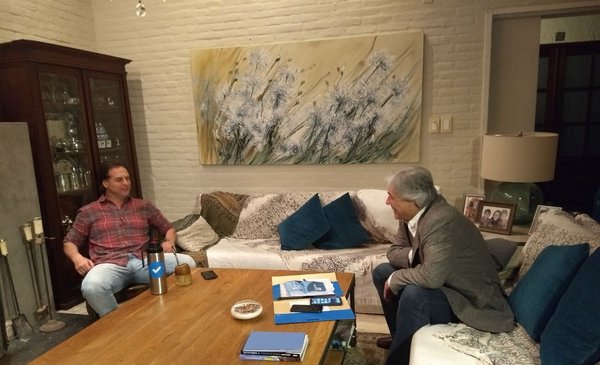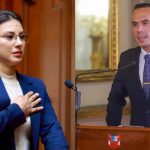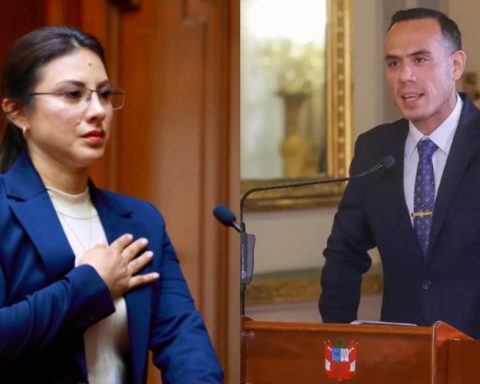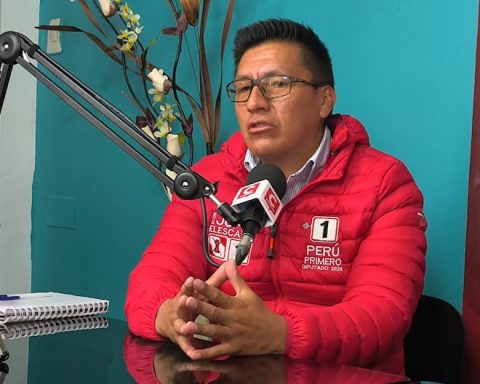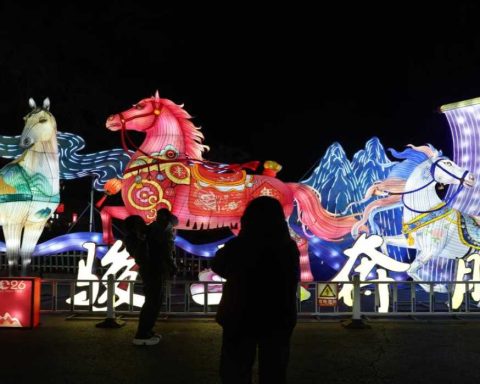At intimate circle of President Luis Lacalle Pou there are those who believe that Francisco Bustillo’s time in the chancellery is over. However, the Minister of Foreign Affairs received public support from the president in recent days, after the “errors” that, in the president’s opinion, Bustillo made with the Uruguayan non-adherence to the condemnation of the Russian invasion in the Organization of American States ( OAS) and the UN Security Council. This Thursday, in an interview with Telemundo, Lacalle Pou revealed that his chancellor made him available to the position because “It’s what you do to a friend” and that he dismissed it outright by virtue of that friendship of “many, many years”.
As the president narrated, there is a lasting bond between them that even has a family component. And beyond the anger that the president could accumulate, those who know him understand that will not yield to pressure as a matter of loyalty and will seek a decent way out when it finds the political opportunity to do so. With the referendum on the core law of this government on the near horizon, it was not the time to do it either.
But the new errors that were made public last week, and the way in which the president defended him, leave the feeling that the chancellor continues but it’s already a blown fuse. And if there are new errors, the sight will go to the Executive Tower.
The president decided to support him knowing that there are several aspects in which the management of his friend and chancellor does not hit the key, and some of them he saw first-hand.
He observed him, for example, have a nominal participation during the last official mission to dubai. In the state meetings held during that trip, Lacalle Pou led the meetings and presentations, but when he needed a break, he handed over the ball to the Minister of Economy, Azucena Arbeleche, and the Minister of Industry, Energy and Mining, Omar Paganini, who can express themselves in English fluently.
The president never imagined that the Ministry of Foreign Affairs would become an Achilles heel of his management. The problems for the Executive Tower did not begin with the assumption of Bustillo, as is public and evident to anyone who has followed the journey of his predecessor Ernesto Talvi, but since the arrival of the new minister other problems have appeared that, for the most part, have to see with a centralized management, which isolates and frustrates ambassadors and instills in some a fear that leads to inaction.
Bustillo’s management
One of the most troublesome traits that quickly became apparent was the absolute concentration of issues, decisions and processes in a small nucleus led by the chancellor and seconded by his chief of staff, Fernando López Fabregat. This led to the majority of the hierarchies and middle managers of the Foreign Ministry submit everything to consultation generating an overwhelming accumulation of work and seriously affecting the decision-making process. That could have cost other important mistakes that were corrected by the correction of some ambassadors who, disobeying the instructions of Montevideo, acted in their destinies following their criteria so that the name of the country did not return to the headlines.
But that has not been the norm, especially since the vast majority would not risk an autonomous movement. centralism isolate the ambassadors who, in some cases, have received the express instruction not to intervene in ongoing processes. Most are convinced that their reports are not read, and all question that they are deliberately kept uninformed. The issue escalates when it comes to fundamental countries for Uruguay. That This is the case, for example, of Carlos Enciso in Argentina, Fernando Sandin Tusso in Paraguay and Guillermo Valles in Brasilia, who do not even become privileged witnesses of the efforts of the Foreign Ministry in those countries to achieve the desired commercial flexibility.
There are ambassadors who received a penance, such as the case of Valeria Csukasi, who after leading the external negotiations from the Directorate for Integration and Mercosur Affairs during the administration of the Broad Front and having her permission for the United Kingdom withdraw from Parliament, went on to a minor direction and after four and a half years in Montevideo – when the permanence in the headquarters is three – she will go to her destination as ambassador in Malaysia. Something similar had happened with Ambassador Raúl Pollak, director of Political Affairs during Rodolfo Nin Novoa’s chancellorship, who after spending a few months in his house went to Vietnam, when his destiny was in Rome.
The confusion among the officials of the Foreign Ministry is important and that has led to an ambassador requesting leave without pay when arriving in Montevideo for not wanting to work in those conditions. as he knew The Observerthere are other diplomats thinking of adopting the same determination.
But the inconveniences were not only inside doors. The minister has maintained a relationship of tension with other state agencies, such as the National Institute of Human Rights or Uruguay XXIan institution that suffered a notorious loss of relevance during this management. During the last official mission to Dubai, Bustillo criticized that the state commercial agency had invited so many businessmen, but before leaving, the president asked his ministers to be willing to exchange with them.
At the level of foreign policy, there are still no high points to highlight. In Mercosur, Uruguay looks isolated as a result of a policy of pressure and imposition that until now does not seem to be generating results and, to a large extent, that would seem to compromise the government’s main commitment: the FTA with China. Six months after the announcement of the start of the joint feasibility study with China, there is still no good news to report.
The exit
Before landing as ambassador in Madrid, Bustillo was Luis Almagro’s chief of staff. His departure from Montevideo was involved in a controversy with Argentina, with whom the administration of José Mujica had several open fronts. The way that government found to throw a bucket of ice water that would buy some peace was with the departure of Bustillo, who received a coveted destination.
Like that time, it would seem that Francisco Bustillo will leave Montevideo again amid questions. He will, surely, when the heat of the controversy subsides. In his case – and unlike other ministers – it is very easy to find an argument because, after all, he is a diplomatic official who wants to follow his career abroad. And so it will be.
